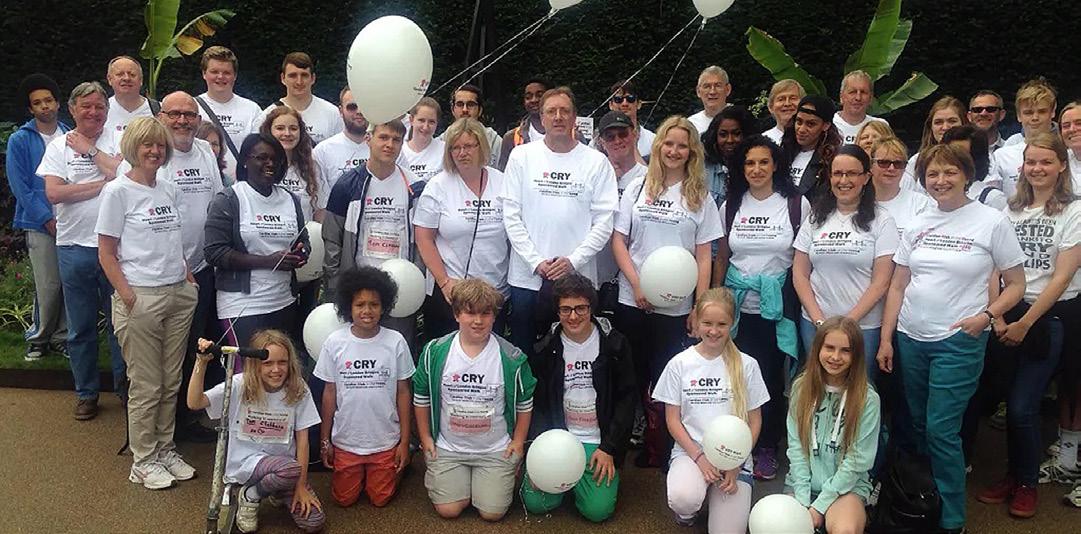
4 minute read
The importance of CRY's Heart of London Bridges Walk
It is significant that CRY’s annual Heart of London Bridges Walk has become such a massive feature in the CRY calendar that we start preparing for it immediately after the previous one has finished.
The power of our families coming together for what has always been our most important and well attended event cannot be exaggerated. Knowing that they will have the opportunity of walking and talking with others similarly affected provides a secure blanket of relief that their catastrophic grief will be understood.

CRY supporters at the start of the 2016 Heart of London Bridges Walk
A place where the vacuum of loss needs no explanation. Where tears will be commonplace. Being able to share the repercussions of the ‘new you’ that they have become allows an outpouring of the person they were. Now are.
Being able to write a personal message on the massive CRY bereavement board and read the stories of others suffering like themselves, can relieve the pain.
Coming to terms with the young sudden cardiac death of an apparently fit and healthy child, sibling, partner or friend can be catastrophic, and impossible to understand. There is no logic or science of reasoning that can be applied. Death is instant, without warning.
The brutality of the loss is best spoken of, and none better than to another with a similar situation to come to terms with. It needs no interpretation and the warmth of understanding each other can hugely help them to understand themselves.
The following piece is by CRY supporter Paul Clabburn, who explains his connection to the Bridges Walk event:
I didn’t go on the first CRY Heart of London Bridges walk in 2007. I didn’t go because I hadn’t heard of CRY and my teenage son, Tom, was thriving. Except he wasn’t. In October of that same year, Tom died aged 14 of an undiagnosed heart condition. By the time CRY held its second walk, I knew all about the charity and the extraordinary work of Alison Cox. We prepared by printing t-shirts so that we could carry Tom on our backs. We felt distinctly nervous when we arrived at Victoria Embankment, happy to be distracted by helping Tom’s mum, Claire Prosser, gather material for a BBC radio documentary, “Life After Tom.”
It turned out to be an extraordinary day. The sun shone, the crowd gathered, and Team Tom swelled to an unimaginable number. More than 100 family and friends, including so many of Tom and our daughter, Ellen’s, friends, turned out in support. I remember wondering, given the occasion, whether I should smile in the team photo. I chose ‘neutral.’ As for the walk itself, I hit upon a practice I’ve followed ever since, using the first part to thank those who have made the effort to come, the rest to be alone with my thoughts, just me and Tom.

Team Tom at the 2014 CRY Heart of London Bridges Walk
I listened again to Claire’s documentary on BBC Sounds while writing this. If you’d told me in 2008 there still wouldn’t be a national heart screening programme, I wouldn’t have believed you. That’s nearly 10,000 young people who have died since Tom. Many need not have done. While that, sadly, hasn’t changed, much else has. We were all tested after Tom’s death and Claire was found to have a heart condition. She died in 2014 having campaigned relentlessly, often while ill. Since then we’ve walked for Tom and Claire, too.
While I can walk, I will. After so many years, putting one foot in front of the other for Tom and all those like him still feels the right thing to do.



